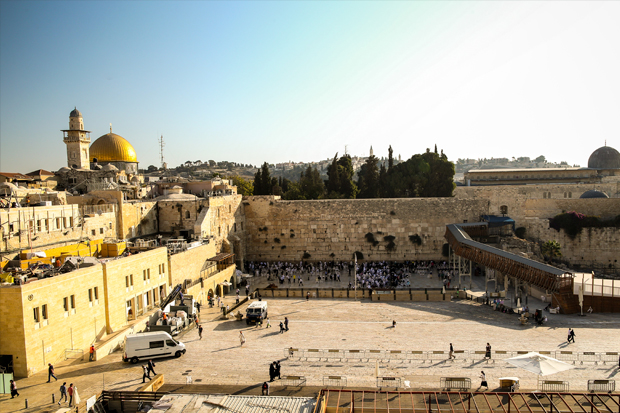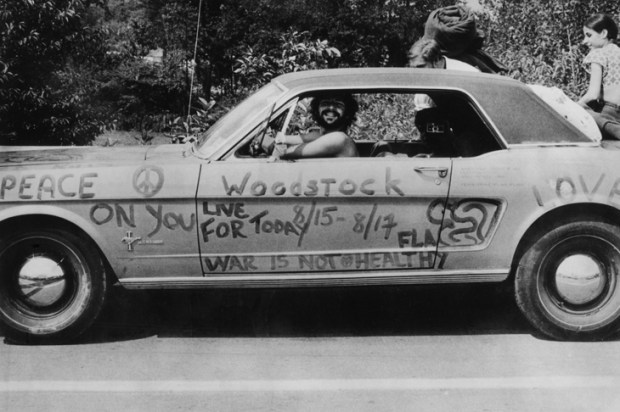The denial of a people’s heritage has a long and ignoble history. Dictators, from Biblical times to the most recent, have justified their crimes by destroying the legacy of the peoples they conquer and having their disciplined storytellers create a chronicle of their heroic deeds.
While this was true of Egyptian Pharaohs and Crusader conquerors, it is just as true today in a world where terrorist groups are re-writing the history of their faith as a narrative to justify their irredentism.
Almost a century ago, the world witnessed Stalin rewrite history books and create a mythology of his benign and paternalistic leadership, in face of the reality of the tens of millions he ordered murdered or exiled to frozen Gulags.
The destruction of a people’s history and heritage is a devastating way to demoralise a population into submission. Some years ago, we reeled in horror when the Taliban in Afghanistan destroyed the ancient and unsurpassed statues of the Buddha in Bamiyan, and we sat helpless as Isis destroyed the incomparable monuments of Palmyra in Syria.
The pictures of the destruction shocked the world, and led the Director-General of UNESCO, Irina Bokova, to call the action of the terrorist group ‘a form of cultural cleansing’.
Yet this very same body, the United Nations Educational, Scientific and Cultural Organization, founded in the rubble of the Second World War to create conditions for peace between nations based on humanity’s moral and intellectual solidarity, is at the heart of denying Christianity’s and Judaism’s foundation histories. Though UNESCO claims that it strives to build networks for understanding and harmony, its current membership is doing precisely the opposite.
The centre of this conflict is the Temple Mount in the middle of the ancient city of Jerusalem, site of the holiest monuments of the three great monotheistic religions, Judaism, Christianity and Islam. UNESCO has recently voted on a resolution entitled ‘Occupied Palestine’. In it, the only identification of the area is in Arabic terms, Al-Haram Al-Sharif, or the Noble Sanctuary. This naming is deliberately designed to exclude thousands of years of recorded history, denying the Christian and Jewish connections to their holy places.
Algeria, Egypt, Lebanon, Morocco, Oman, Qatar and Sudan sponsored the resolution on behalf of the Palestinians, who only have observer status at UNESCO.
The Mount in the centre of Jerusalem, where Solomon built his Temple in 950BC, is sacred to all three faiths.
For Islam, it is the reputed site where the Prophet ascended to heaven. On top of the Mount are the mosques of Omar and Al Aqsa.
For Christianity it is where Jesus of Nazareth confounded the Sadducees as a young boy with His brilliance and later overturned the tables of the moneychangers. The Via Dolorosa, where Christ carried His cross to His crucifixion, is close by.
Archaeological history dates a Jewish presence in Jerusalem to a thousand years before Christ. When the Romans destroyed the Temple in 70AD, they left only its Western Wall, now the holiest place of Judaism.
Jerusalem is mentioned by name over 669 times in the Old Testament, and 154 times in the Christian Bible, yet the name Jerusalem does not appear on one single occasion in the Koran. Islam has only involved itself in Jerusalem since 668AD.
But the refusal to use a Hebrew or Christian name for the Temple Mount carries enormous weight by its denial of any heritage but that of Islam, which is the latest episode in a decades-long agenda of Arabic nations to marginalise and ultimately delegitimise Israel.
Read in tandem with the global Boycott, Divestment and Sanctions movement to delegitimise Israel and force corporations, universities and other bodies to proscribe any contact with the Jewish nation, it quickly becomes apparent that many Arab nations are using PR, commercial pressure and lawfare to achieve their goals.
Today, attempts to destroy Israel are being carried out in the United Nations, and in the boardrooms of the world’s largest companies.
And this latest attempt has been under the auspices of the UN Agency, often described as the intellectual arm of the world body. Disturbed by the recent UNESCO resolution, Secretary- General Bokova commented, ‘As I have stated on many occasions… Jerusalem is the sacred city of the three monotheistic religions – Judaism, Christianity and Islam. It… was inscribed on the UNESCO World Heritage list.’
Perhaps, but the resolution denying a Jewish and Christian connection with the Temple Mount is on a par with saying that St Peters has no connection with Christianity, or that Mecca isn’t Islamic.
Regardless of the merits of the political disputes, from the day of its establishment, the Government of Israel legislated freedom of worship to all faiths and guaranteed access to all holy sites, in stark contrast to previous Arab control of the holy land where Jewish holy sites were damaged and destroyed.
A people’s history, heritage and culture define not just who they were and who they are now, but who they will be.
To deny a people its heritage is a crime against humanity, and has been determined as a contravention of the Geneva Convention, which contains provisions specifically forbidding intentional and gratuitous damage to undefended cultural heritage.
People who hold the Jewish and Christian faiths dear to their hearts should be very worried about this latest abuse of truth at the hands of the United Nations.
The post If I forget thee, Oh Jerusalem… appeared first on The Spectator.
Got something to add? Join the discussion and comment below.
Get 10 issues for just $10
Subscribe to The Spectator Australia today for the next 10 magazine issues, plus full online access, for just $10.
You might disagree with half of it, but you’ll enjoy reading all of it. Try your first month for free, then just $2 a week for the remainder of your first year.














Comments
Don't miss out
Join the conversation with other Spectator Australia readers. Subscribe to leave a comment.
SUBSCRIBEAlready a subscriber? Log in